
Posts Tagged: Thomas Tomich
Reinventing agriculture at Russell Ranch
The size, scope and intensity of research at Russell Ranch Sustainable Agriculture Facility at UC Davis make the 300-acre experiment like no other in the world. The ranch’s unique focus on sustainability research is what draws producers, researchers and students to its annual Russell Ranch Sustainable Agriculture Field Day.
Located just west of the main UC Davis campus, Russell Ranch is a testing ground for the long-term sustainability of various farming methods. Research at the ranch focuses on fundamental components of agricultural production – energy, water and land resources – to help address the big questions of the future.
“The human population on the planet is going to increase from about 7 billion people to 9 billion people in 2050, which raises questions about food supply,” said Tom Tomich, director of the Agricultural Sustainability Institute at UC Davis, which houses Russell Ranch. “There is a great success story with agriculture and food production in the last 40 or 50 years – roughly doubling food supply. What that took, though, was doubling of nitrogen, tripling of phosphorus, a lot of advanced research. Now, are we going to be able to do this next doubling to feed the next two billion with business as usual? Or are we are going to have to discover new ways of combining sustainability with intensification to increase productivity?”
A majority of the ranch is comprised of a century-long research project devoted to better understanding the relationships between inputs like fertilizers and cover crops, and various indicators of sustainability. The rest of the ranch hosts a variety of other experiments conducted by researchers not involved in The Century Experiment.
Russell Ranch Field Day
Just as spring gives way to the heat of summer every year Russell Ranch hosts a field day to highlight the research in sustainable farming that is being conducted at UC Davis and primarily at the ranch. This year’s field day focused on issues involving nitrogen, water and climate change.
More than 160 growers, scientists and students learned about greenhouse gas emissions from agriculture, California’s new carbon market and soil microbial communities. Researchers from UC Davis and the company PureSense presented the results of research on a novel method for determining local, crop-specific water demand levels in real time to improve irrigation scheduling.
Thomas Harter, UC Cooperative Extension specialist in the UC Davis Department of Land, Air, and Water Resources, shared the results of a new report, “Addressing Nitrate in California’s Drinking Water,” which is the first comprehensive scientific investigation of nitrate contamination in two of the most agriculturally rich areas of California – the Tulare Lake Basin and the Salinas Valley. Harter and his team found that more than 90 percent of human-generated nitrate contamination of groundwater in these basins is from agricultural activity.
“First and foremost, this is about getting safe drinking water to people,” Harter said.
Problems like these inspire researchers at Russell Ranch to help agriculture develop in a way that will feed the planet’s growing population without creating health and environmental problems, Tomich said.
“California agriculture has always had this spirit of innovation. It has basically reinvented itself every generation. So, a lot of what we’re about here and throughout the Agricultural Sustainability Institute at UC Davis is asking: What’s going to be the scientific foundation for the next generation of California agriculture?”

Field day at Russell Ranch.
Software has the Silicon Valley, but ag technology isn't centered in one place

“With a state a thousand miles long and ecosystems ranging from rain forests to arid deserts, and cropping patterns affiliated with all those things, you will not find a single location to do what needs to be done,” said Don Klingborg, who directs the advocacy and county partnerships effort at the University of California Division of Agriculture and Natural Resources.
That’s why the university has nine extension centers across the state — someone needs to make sure that the ideas that come out of campus labs will actually work in the field, the article noted.
“Once it has gone through that and you have done the fine-tuning, then it is time to do the transfer into the private sector,” Klingborg said.
A new generation of farmers emerges
Linda DuBois, Comstock
There are a significant number of younger Californians very interested in food, and that leads them to an interest in agriculture, said UC Davis professor Tom Tomich, director of the UC's Agriculture Sustainability Institute and of the statewide UC Sustainable Agriculture Research and Education Program.
To meet this demand, UC Davis launched a new bachelor’s degree program in sustainable agriculture and food systems.
“There’s a real emphasis on experiential learning because so many of the students don’t come from a farm background,” Tomich says.
Nurturing a new crop of farmers is imperative because California agriculture is crucial to the state’s economy and to the nation’s food security, says Craig McNamara, president of the California Board of Food and Agriculture.
Sustainable agriculture and food systems: An innovative new major at UC Davis
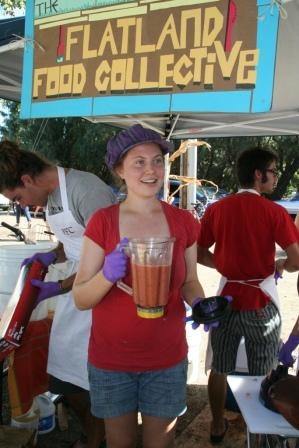
Food systems is a broad term that addresses nutrition and health, sustainable agriculture, and community development. A food system encompasses the entire production chain, not only from farm to fork, but includes broader topics such as short- and long-term impacts on the environment, labor, management of food inputs (e.g., water, pesticides) and outputs (e.g., waste), and the socioeconomic impacts on communities engaged in the food system. In other words, food systems encompasses agricultural production within the broad context of environmental, economic, social, and political concerns.
Neal Van Alfen, dean of the College of Agricultural and Environmental Sciences at UC Davis, noted during the celebration ceremony for the new major, “Agriculture is incredibly knowledge intensive. It is as knowledge intensive as launching rockets.” He cited a terrarium as a model for how we must maintain a sustainable food production system with limited resources to feed a rapidly growing global population. “The planet is a closed system,” Van Alfen said. “We have to get it right.”
Professor Tom Tomich, master adviser for the major and director of the UC Davis Agricultural Sustainability Institute, said, “The major is about leadership, as much as it is about education. It’s about creating a new generation of leaders who will go on to guide the sustainability transformation for this country and for this planet.” Unlike student programs that are limited to classroom learning, Tomich said that the curriculum for the new major combines the best of three worlds — classroom and labs, the Student Farm, and the real world.
Karen Ross, Secretary of the California Department of Food and Agriculture, attended the opening, along with other high-level state leaders in agriculture, including Craig McNamara, president of the California State Board of Food and Agriculture, and Don Bransford, president of the UC President’s Advisory Commission on Agriculture and Natural Resources.
UC Davis chancellor Linda Katehi, who spoke about UC Davis’s national leadership in sustainability, noted, “This leadership from the state shows the importance of the program and what impact it may have on the state, on us as an institution, and on our students.”
“Agriculture and food have shaped human civilization and are central to well-being and health,” said Ralph Hexter, provost of UC Davis. “We recognize the need to understand both the natural world and our human activities holistically.” Addressing the global significance of the major, Hexter added, “Sustainable Agriculture and Food Systems is a major that is truly designed for the 21st century. It responds to today’s needs and incorporates experiential learning and state-of-the-art research.”
A recent UC Davis graduate who helped lay the groundwork for the curriculum, Maggie Lickter, spoke passionately to the 200 people celebrating the major. She said that the major is driven largely by students who have cutting-edge ideas and want to be engaged in creating a useful education. Lickter said that many students felt that components were missing from the traditional agricultural curriculum, such as farming practices grounded in an understanding of ecological systems, and the application of critical thinking skills to modern-day food systems.
In a moving tribute to the success of establishing the major, Lickter said, “This work can’t stop. If you stop stoking romance, love dissolves. If you stop tending a garden, plants wither. So we must stay committed to the evolution of this major.”
Dean Van Alfen, a strong proponent of UC Davis partnerships with the California agriculture industry, views this major as an additional way to create graduates with industry-ready work skills. Addressing UC Davis’s national and global leadership in agriculture, he said, “Agricultural sustainability has been a theme of this campus for a very long time. This new interdisciplinary major is the future in so many ways. It reflects our campus spirit and our culture. It will meet the needs of our stakeholders and the future of our planet.”
For more information:
- UC Green Blog
- Early press release
- UC Davis Student Farm
- UC Davis Agricultural Sustainability Institute
- About the major
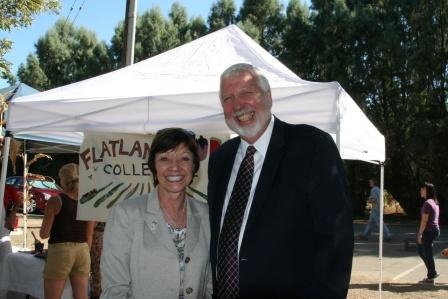
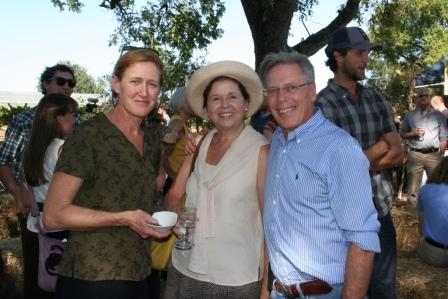
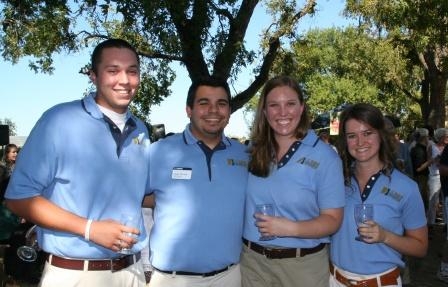
New college degree: “Sustainable agriculture and food systems”
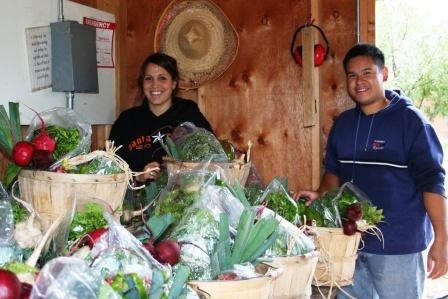
As noted in the Los Angeles Times, “With rising public interest in where our food comes from — as well as in "green" living — it makes sense that higher education would be eager to attract students who want to tap into the intersection between these two fields.”
Students will focus on the social, economic, and environmental aspects of agriculture and food — from farm to table and beyond. The program is designed to help students obtain a diversity of knowledge and skills, both in the classroom and through personal experiences on and off campus.
Students will take courses in a broad range of disciplines, but will focus in one of three tracks: Agriculture and Ecology, Food and Society, or Economics and Policy.
“This interdisciplinary curriculum will prepare students to become leaders in agriculture and food systems,” said professor Thomas Tomich, the major adviser for the program and director of the Agricultural Sustainability Institute at UC Davis.
The major is new, but UC Davis has been covering the subject in field- and classroom-based interdisciplinary learning opportunities at the Student Farm at UC Davis for more than 35 years, said Mark Van Horn, the Student Farm director who will teach a core course in the major.
“Learning through doing and reflection adds a valuable dimension to students’ education because it helps them see the connections between theory and practice in the real world,” Van Horn said.
“This is an exciting addition to the college that reflects a change in how we think about food and agriculture,” said Neal Van Alfen, dean of the College of Agricultural and Environmental Sciences. “Students will gain a broad perspective of what it takes to put dinner on the table in an era of greater demand and fewer resources.”
For more information:
- Full press release
- UC Davis Student Farm
- UC Davis Agricultural Sustainability Institute
- About the major
